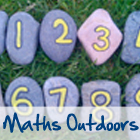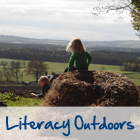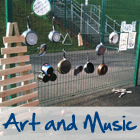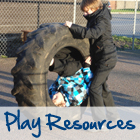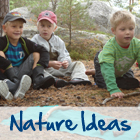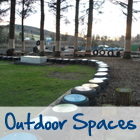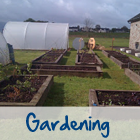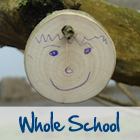
Recently I was asked to think about why I teach literacy outside. Whilst there is a lot of focus on early years and literacy, the value of reading, writing, talking and listening outside for children and young people of all ages is significant. Here’s 10 off-the-cuff reasons I said…
1. It makes the learning and teaching of spelling and grammar fun, relevant and interesting.
2. I find that children enjoy making miniature worlds which then become the scene for a story. They can sculpt and shape their imaginative thoughts. This helps them understand about creating a setting with words.
3. The world around us provides inspiration for writing poems. The results are consistently of a better quality than poetry written in the classroom.
4. As we move from place to place, our thoughts, feelings and actions change. This helps us understand that this happens to characters in a story too. We can make our character descriptions more authentic.
5. There is nothing like reading a ghost book or horror story in a creepy place. Or making up your own. The setting doubles the atmosphere created.
6. When we play games we can write down instructions about how to play them. Our knowledge of being outside can be used to write advice to others about how to avoid being stung by a wasp or what to do if a nettle stings you. Functional writing has additional purpose and relevance.
7. Real life experiences help us develop our vocabulary and comprehension. For example, some children find vocabulary introduced in a book confusing. He or she may not necessarily understand that a river, lake, stream and pond are all bodies of water. Sometimes concepts that are read about in a book do not make sense until they are seen, felt or experienced for real.
8. We’re not reading at our desks. Hardly anyone reads at a desk unless they are at school or in an office. Reading for pleasure should be at leisure.
9. The art of naming, describing and knowing about the world around us matters. You can learn the umpteen descriptions to describe the stem of a plant. But without observing these, it is much harder to memorise or to truly know and understand.
10. Children engage with their learning outside and this has a knock-on effect back in the classroom too, according to a this study.


